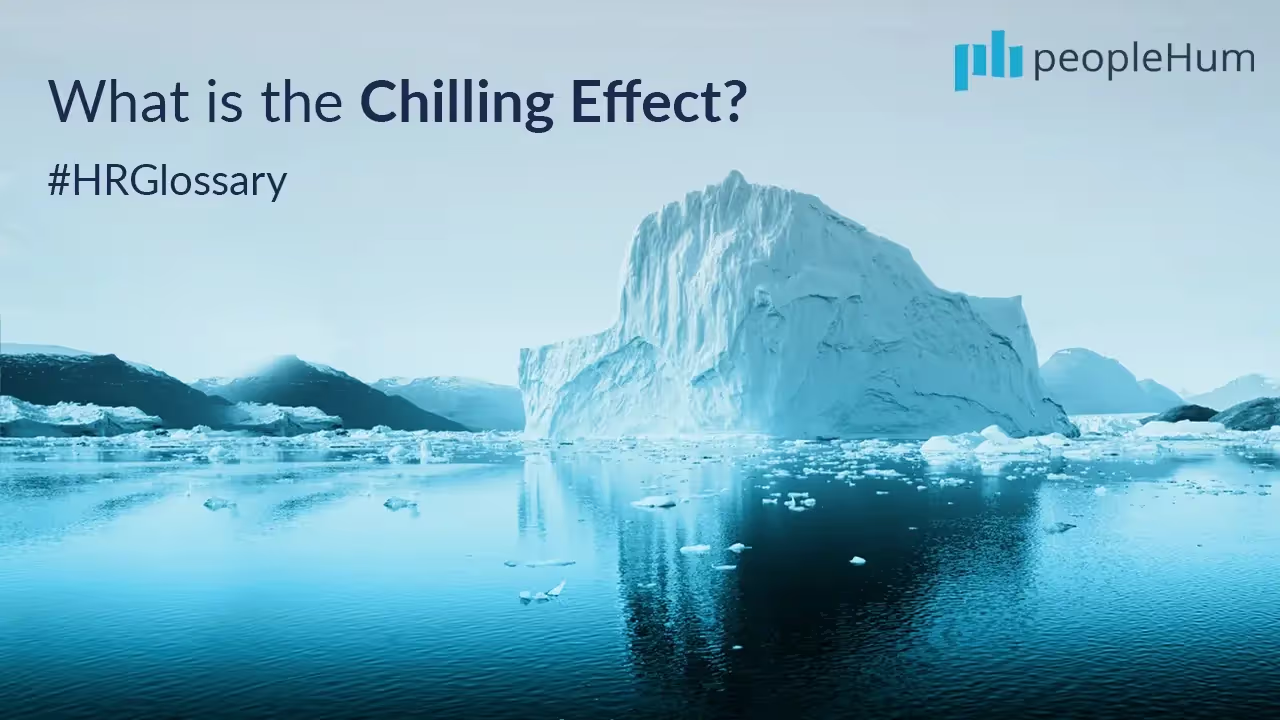
What is the chilling effect?
The "chilling effect" is when individuals or groups hold back from expressing themselves due to concerns about breaking a law or regulation. This typically occurs when a law is too broad or not well-defined. People choose not to engage in certain activities because they fear possible retaliation, legal consequences, or government actions.
What causes the chilling effect?
Understanding the causes can be essential in promoting a more open and inclusive environment where individuals feel safe and encouraged to express their opinions without fear.Here are the causes of the "chilling effect":
1. Vague policies
Ambiguities in rules and regulations can create uncertainty about what kind of speech or behavior is permissible, leading people to err on the side of caution and refrain from certain expressions or actions.
2. Broad regulations
When policies are too inclusive, they can discourage a wide range of behaviors, including those that might be constitutionally protected, out of fear of potential repercussions.
3. Inconsistent enforcement
Inconsistent or prejudiced enforcement of rules can make people anxious about when they might face consequences, causing them to hold back on expressing themselves.
4. Peer pressure
The pressure from society or the community to go along with popular beliefs can stifle differing opinions and deter open conversations.
5. Institutional consequences
The chance of encountering disciplinary actions or penalties from institutions such as schools or workplaces can discourage people from sharing particular perspectives or engaging in specific activities.
6. Legal repercussions
Concerns about potential legal consequences, such as lawsuits or criminal charges, can inhibit speech, even if the speech in question might be legally protected.
Examples of the chilling effect
At its core, the "chilling effect" is the silencing impact of potential repercussions. In the workplace, it appears when employees are afraid of negative outcomes, like retaliation or discrimination, which stop them from speaking up or participating. To get a clearer picture, let's explore this with some real-life instances.
1. Whistleblowing
An employee discovers unethical behaviour or rule violations within the company but hesitates to report it due to concerns about job loss, harassment, or being isolated by coworkers. This fear can deter them from speaking up, even when anonymous reporting options are available.
2. Salary discussions
In some workplaces, openly talking about your salary with coworkers is disapproved of, and sometimes, it's explicitly discouraged. This can hinder conversations about fair pay and stop employees from recognizing and resolving wage disparities.
3. Harassment reports
An employee goes through harassment or bullying but is reluctant to report it, fearing that they won't be trusted, may encounter retaliation from the harasser, or will be tagged as "troublemakers" by peers and higher-ups.
4. Feedback on management
A company might talk about the importance of open feedback, but when an employee witnesses a coworker facing backlash for being straightforward, it can discourage others from speaking up about management or organizational concerns.
5. Participation in unions
In workplaces where management is against unions, employees might avoid joining or supporting a union due to fears of being fired, overlooked for promotions, or otherwise penalized.
6. Raising mental health concerns
An employee might be hesitant to disclose mental health issues or request accommodations, fearing they'll be seen as unreliable or that it might hinder their career advancement.
7. Discussing personal lives
In certain traditional work settings, LGBTQ+ employees might hesitate to openly share their sexual orientation or have conversations about their personal lives, as they are concerned about facing discrimination or being unfairly judged.
8. Expressing social or political views
In the current polarized climate, there are employees who choose not to talk about their political or social convictions, especially if they feel their opinions are in the minority or could be viewed as contentious within their workplace atmosphere.
How do you prevent the chilling effect?
Preventing the chilling effect in organizations is much like tending to a garden – it requires nurture, clarity, and a bit of foresight. Here are the three key ways:
- Establish clear policies: Ambiguous rules, often the bane of open expression, should be replaced with transparent guidelines. Employees must know where the boundaries lie, ensuring they don't tiptoe around, fearing they might cross into the unknown.
- Consistency is the key to ward off haunting surprises: When rules seem to pop up like surprise speed bumps, employees can't navigate their paths confidently. Fair and unbiased application of policies ensures that everyone knows where they stand. Imagine a game where everyone knows the rules and plays by them; the game flows smoother, and so does communication in a transparent environment.
- A workplace that welcomes open interaction: Fostering a culture of open dialogue can work wonders. Encourage employees to voice concerns and assure them that retaliation is off the table. When people feel their opinions are valued, and there's room for healthy debate, the icy grip of the chilling effect starts to melt away. After all, a vibrant organization thrives on diverse voices, not silenced whispers.
Conclusion
The 'chilling effect', while daunting, is a phenomenon we must confront and understand. This problem is closely connected to the idea of free speech and open communication. It reminds us of the importance of creating environments where people feel safe to speak up without fear.
In workplaces, the 'chilling effect' affects issues like diversity and fairness. People may not report problems like harassment because they're worried about what might happen to them. This isn't just bad for individuals; it also hurts the organization.
To fix this, we need clear and fair rules, inclusive cultures, and protection for those who speak up. We want to create spaces where people can freely share their ideas without fear, and where the 'chilling effect' is a thing of the past.














































.avif)